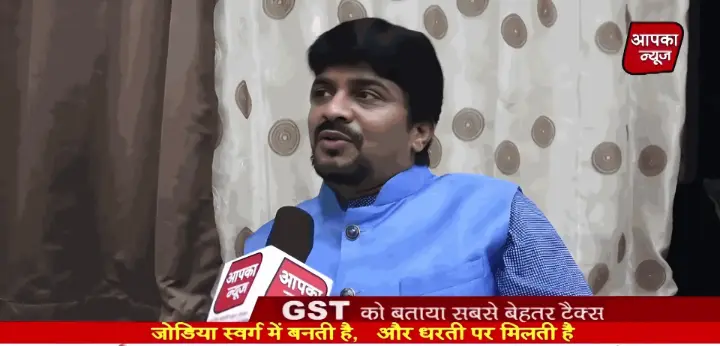When the central government introduced GST with the vision of “One Nation, One Tax,” it was hailed as a revolutionary move. But implementation without education is like pushing a farmer into the field without a plough. R. R. Pandayan Saheb, the National President of Jai Bhim Sena, strongly supports Prime Minister Narendra Modi’s larger vision but boldly voices the realities faced by small and medium businesses in the current GST system.
R. R. Pandayan Saheb believes GST is not inherently bad—it is a positive reform. But the lack of clarity, training, and support for small traders, self-employed individuals, and traditional businessmen is leading to frustration, confusion, and in some cases, financial collapse. He points out that GST benefits are still only visible to large corporates with teams of tax advisors, while the chai-wala, small manufacturer, or village shopkeeper is left to suffer under complex rules.
Empowering Through Understanding, Not Penalties
Pandayan Saheb insists that the issue is not GST itself, but how it is implemented. Many are struggling not because they want to avoid taxes, but because they don’t understand the process. Filing returns, input credits, multiple rates, and digital compliance have turned business into a nightmare for small-scale traders.
He calls on the government to launch a mass education campaign—through local GST offices, video tutorials, multilingual guides, and free consultation camps. Every street vendor, shop owner, and rural entrepreneur deserves to know how to do their business legally without fear. According to Pandayan Saheb, if the government wants true national development, it must build trust between the state and its taxpayers—not just demand compliance.
Income Tax Relief: Fulfilling a Forgotten Promise
R. R. Pandayan Saheb also reminds the nation of the unfulfilled promise of reducing or abolishing personal income tax once GST gained traction. Today, with GST revenues at an all-time high, the burden on middle-class salaried citizens remains unjustified. “If one nation, one tax has truly succeeded, then where is the relief?” he asks.
He urges the Finance Ministry to seriously evaluate the pressure on the common taxpayer and reduce income tax slabs—or consider abolishing it for certain brackets. It’s time the benefits of economic reforms reach the hands of those who build the economy from the ground up.
Final Appeal: Transparency, Simplicity, and Support
Pandayan Saheb’s message to the government is loud and clear: tax reforms must work for the people, not against them. He demands not only fair taxation but also support structures—helplines, training programs, and easy grievance redressal—to help India’s small entrepreneurs grow, not quit.
In his words:
“If a government policy becomes too complex for the common man, it stops being public policy and becomes a private puzzle. Simplify GST, educate the people, and respect those who fuel the economy—our traders, businessmen, and taxpayers.”
